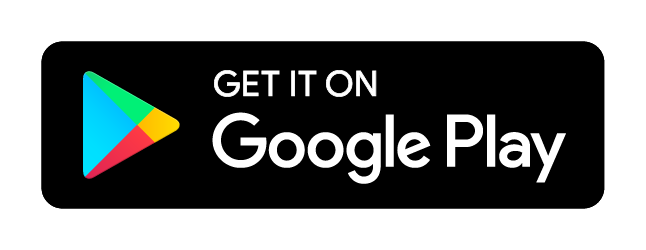"I like work: it fascinates me. I can sit and look at it for hours."
Jerome K. Jerome (Three Men in a Boat, 1889)
If you’re sure that you’re a chronic procrastinator (see Part 2 of this series, Are You Really a Procrastinator? to find out), the roots of your problem grow deep. The big “P” will hamper your life in many areas, not just your career. Because I’m a career counselor, however, I prefer to focus on how you can start to overcome procrastination in career decision-making and job searching. Here’s the help you’ve been looking for—and, as a bonus, it can assist you in areas beyond your career. One notable comment:
All the online/electronic devices are like addictive drugs to a procrastinator. Be aware of how much time you devote to these “black holes,” or no matter what strategy you apply, you will slide deeper into the big “P” morass!
Spend less time online and more time taking action to overcome your habit of excessive distraction and delay.
Let’s assume you are employed but are unhappy in your present work situation. You need the work, but sense that you want something different. You’ve suffered extreme stress in your current job and perhaps have developed health problems related to that stress. You know you need to change, but keep putting off any sustained action. It’s time to think and act differently.
Overestimating or underestimating how much time you have committed or available is often a problem with procrastinators. Psychologist Neil Fiore, in his book The Now Habit, offers the “Unschedule.” Rather than listing time for the project you are avoiding, Dr. Fiore suggests creating a weekly calendar of all your already committed activities (e.g., meals, sleep, meetings, socializing, gym or other exercise time, and other routine structured events such as commuting, classes and medical appointments). This helps sharpen your perception of time.
Only after you have done this will you see potential 30-minute blocks of time available. Use one and only one of these 30 minutes to work on your project. Let’s say you’re working on updating your resumé. So you could take 30 minutes to, for example, make a list of all your jobs related to your targeted position, including key accomplishments in each job. Reward yourself with something pleasurable for getting started and look for other available short blocks of time during the week. You might find a day where you can start earlier and include two or more half-hour slots toward your project. Never spend more than 5 hours a day on any previously avoided task.
Think small, always focus on starting, do concrete tasks that have tangible results, and never stop working during that short time even if you feel blocked. If you hit a tough spot, always try for 5 or 10 more minutes to come up with at least a partial solution. Maybe you need to make a follow-up call to a potential employer, but cannot bring yourself to press those buttons. Instead of avoiding your task, make a practice call to a friend or your voicemail and rehearse as if you were calling the employer. This could be helpful during another call attempt if you find yourself procrastinating again. Having an alternative solution makes it much easier to get started at a later time. Remember, always follow your short work periods with a reward.
After using the Unschedule for 1 or 2 weeks, notice on which days you get more done. Look for other patterns, such as days when you have a hard time getting started. You might need to lower your goals on those days, and add more project time on your more productive days. Make certain that you have guilt-free times and avoid workaholic tendencies. It takes about 6 to 8 weeks of consistent effort to change habits, so think long term about overcoming procrastination. You can find a sample Unschedule and blank form at www.neilfiore.com/nowhabit.shtml.
During a job hunt, one of the hardest emotions to conquer is fear, which may block your search for a new position. If you’ve been laid off, you’ll have conflicting but normal feelings, including shock and denial, fear and anxiety, and anger and depression. These often lead to a delay in starting your job hunt, which can lead to chronic avoidance and procrastination. Try using The Job Loss Recovery Guide CD by Lynn Joseph as soon as you have left your job. This guide’s foundation uses mental image technology (MIT) to help you relax and move through your distress and to move forward in your search. Part One guides you through sessions that resolve job loss distress and build self-confidence, and Part Two helps you feel more empowered throughout your job search. Dr. Joseph backs this up with research that shows that those who used this program for 2 months were five times more likely to find employment than those in the control group.
Procrastination is a complex concept, but is generally a failure of self-regulation and weakening of will power. Self-regulation means the ability to control behavior, such as the ability to defer short-term gratification in favor of long-term, larger rewards. Simple actions such as exercising enough to raise your endorphins, getting an extra hour of sleep, and focusing on a glass half-full attitude can raise motivation and increase willpower to avoid distractions. When we say to ourselves "I'll feel more like it tomorrow," we have to stop, take a breath and think about why we intended to do the task today. Ask “Why is it important to me? What benefit is there in making the effort now? How will this help me achieve my goal?” In the case of your career, it could make the difference between being successful in landing a new job or sliding into depression and debt. Learn to be more realistic about how much time it will take to start, work at, and finish a project. To overcome procrastination, set well-defined, concrete, attainable goals and pay attention to your goals as an ongoing process in self-regulation. Life is a marathon. Occasional sprints are good for short-term motivation, but building endurance is the key to maintaining your focus and going beyond the short-term pleasures. Spend more time in action than online. Making the effort will build your confidence and earn you great rewards.




